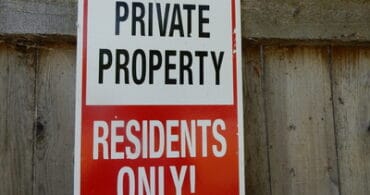Insights

Renting Property: To Furnish, or Not to Furnish?
One of the key questions for landlords when preparing to rent out a property has to be, to furnish, or not to furnish? It is certainly an important consideration, as it will have a direct impact on the type of tenant you attract, and the amount of rent you can charge. Let’s explore the pros and cons of renting furnished or unfurnished so that you feel ready to make the ultimate choice for yourself.
Read More
How to Deal with Tenant Rent Arrears
Tenants not paying rent is an all too common issue, especially during challenging economic times. But there are some simple steps to follow that will help you navigate your way through the problem, and there are even some strategies that are designed to prevent unpaid rent in the first place.

Paying Tax on Rental Income: Advice for Landlords
Do I pay tax on rental income? It’s a question posed by many would-be or new landlords. It is a good question, but when it comes to taxation of rental income, there is quite a bit to understand. Let’s explore the topic in more detail as we share our experts’ knowledge on the financial side of renting property, together with their top tax tips.

Government Confirms Major Leasehold Changes on the Horizon
Significant changes to English property law and specifically leasehold legislation are set to be introduced as the Government is poised to radically overhaul the system, making it easier and less costly for landlords and property owners to extend leases or convert them to freehold or commonhold in the future.

A Landlord’s Guide to Right of Entry
A lot of landlords are of the opinion that because they own a property, they have an automatic right of entry without first gaining permission from the tenant. There are however clear rules and regulations that dictate when a landlord is allowed, and not allowed, to enter a property, and when tenant permission is required to do so.

Deposit Replacement Schemes Explained
It is often challenging for prospective tenants to find the necessary deposit to secure a property. Even though the Tenant Fees Act 2019 capped deposits at five weeks’ rent, it can still be a considerable sum to gather together. It is no wonder then that the deposit replacement scheme has become a viable alternative for tenants. But how do these schemes work, and should you be relying on them as a landlord?

How UK Planning Law Reforms Could Benefit Property Investors
In its report titled Planning for the Future published in late summer, the government detailed plans for upcoming changes to the planning system in England. The reforms are set to streamline and modernise the planning process and should also spell good news for anyone interested in property investment. Let’s explore why.

Landlords: How to Winter Proof Your Rental Property
With temperatures plummeting, so the risk to property damage increases. Winter is therefore a vital time for landlords to put measures in place to safeguard their investment. Let’s take a look at some of the most essential steps you should be taking to protect your rental property during the harshest months of the year.

Energy Efficiency Regulations: Changes on the Horizon
Since 1 April 2020, it has been law for landlords to ensure all their privately rented properties reach a minimum E-rating for energy performance. This includes all new and existing tenancies. Measures are now being put in place to enforce compliance, and plans are afoot to increase the rating requirement from ‘E’ to ‘C’ for all new tenancies from 2025 and all existing tenancies from 2028.

The Lowdown on Landlord Insurance
Landlord insurance is designed to cover the specific risks faced when renting buy-to-let property. There are different types of cover that address the various types and levels of risks. It’s important as a landlord to know what’s available in terms of insurance, and to ensure you know what you are, and more importantly what you are not, covered for.






